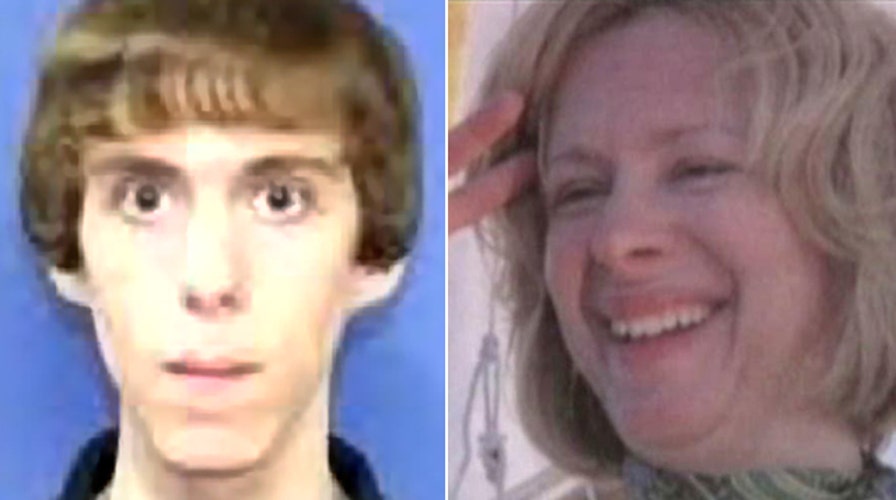A mother's problems with troubled son explodes
Friend details the difficulty Nancy Lanza had connecting with her son Adam before the deadly shooting at Sandy Elementary school
This is a rush transcript from "On the Record," December 17, 2012. This copy may not be in its final form and may be updated.
GRETA VAN SUSTEREN, FOX NEWS HOST: Now, the gunman's own family is speaking tonight, Adam Lanza's aunt insisting Adam was, quote, "a good kid."
(BEGIN VIDEO CLIP)
MARSHA LANZA, ADAM LANZA'S AUNT: He was different. He was quiet. Nice kid. Good kid. I mean, he was a definitely a challenge to the family in that house. Every family has one. I have one. They have one. But never in trouble with the law, never in trouble with anything.
(END VIDEO CLIP)
VAN SUSTEREN: Rich Collins was a friend of Adam's mother, Nancy. He is also the parent of a child with autism, and the two often discussed raising their children.
Rich, thank you for joining us.
RICH COLLINS, FRIEND OF NANCY LANZA: You're welcome.
VAN SUSTEREN: Rich, I'm curious. When did you first meet Adam's mother?
COLLINS: In -- down in the center of Newtown, there's a restaurant bar that's owned by a family called My Place, and it's kind of the local gathering place. So on Sunday nights, they do an open mic and people play music. I play guitar. And that's -- that's where -- Nancy would always come to that. And she would come on other occasions. She was very well liked down at that restaurant.
VAN SUSTEREN: Did she ever sort of open up to you about any particular problems or troubles she was having?
COLLINS: Well, I think -- my connection with Nancy had to deal with - - you know, because I have a son with autism and she had a son with an intellectual disability and it sounded like to me that he was somewhere on the autism spectrum, but very high-functioning. You know, we would talk about it and commiserate about, you know, both of our sons. She was very proud of both of her sons and...
VAN SUSTEREN: Did she ever...
COLLINS: Go ahead.
VAN SUSTEREN: Did she ever hint or say that she was afraid of him or that he was violent or there was anything peculiar in that area?
COLLINS: No, I never heard that. She was proud of her son. He had just learned how to drive this summer. And considering that, you know, he -- for somebody who was on the autism spectrum, you know, I thought that was a big accomplishment.
My son is on much lower on the autism spectrum, and he'll never drive a car.
VAN SUSTEREN: What was your thought when you heard that he had killed his mother and that he had gone to the school -- I mean, you know, what was your thought, listening to that?
COLLINS: I was in shock. Nancy was a friend of mine. I never met Adam. And then -- and then, you know, the big question, why would he go to an elementary school and do this? You know, why would he -- why would he target little children?
VAN SUSTEREN: I read someplace that you said that she had a hard time because he wouldn't let her hug him or touch him or something?
COLLINS: Yes, he was sensitive to touch. You know, my son suffers from sensory deprivation, but he goes the other way. He likes deep-pressure back rubs and he likes to be hugged. And Nancy's son didn't want to be touched, and it upset Nancy because she couldn't hug her son.
VAN SUSTEREN: Well, was she able to communicate with him? I mean, was he responsive to her?
COLLINS: You know, I -- you know, I know, you know, with the -- you know, with the guns, she was -- she was taking him to the gun range, you know, as a that way a single mom could try to bond with her son. That's why she -- he enjoyed it, and that's why she did it. She told me around -- that for Thanksgiving, they went down to Washington, D.C. So I assume, you know, they had some level of communication.
VAN SUSTEREN: You know, the -- I mean, it's such a broad spectrum with autism and Asperger's, and I'm curious (INAUDIBLE) think he might have. Did he -- was he the kind of child -- was he functioning enough where he'd say, Hey, you know, Mom, I'm going to the store, or, Mother, I love you, or anything like that, or was he sort of cold and detached and distant from her and unable to communicate much?
COLLINS: You know, from my conversations with Nancy, I love you, that type of expression of emotions wasn't part of what he would do. He was -- you know, like you said, he was more detached.
VAN SUSTEREN: It certainly is tragic, what happened...
COLLINS: And that used to bother Nancy.
VAN SUSTEREN: I'm sorry. What did you say, sir?
COLLINS: And that used to -- that used to bother Nancy. Nancy was -- tried to be a really good mom to both her boys.
VAN SUSTEREN: Rich, thank you.
COLLINS: You're welcome.

